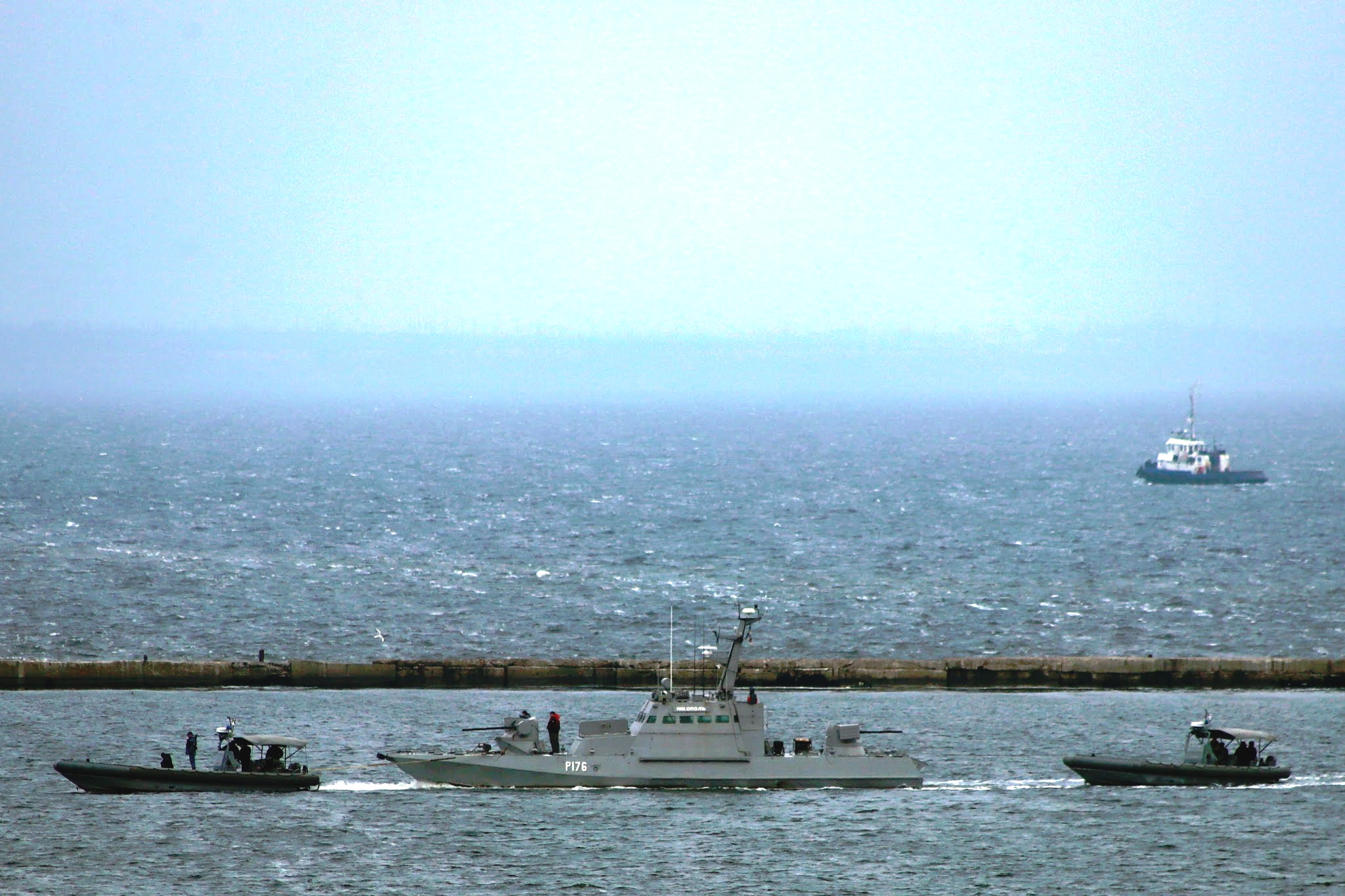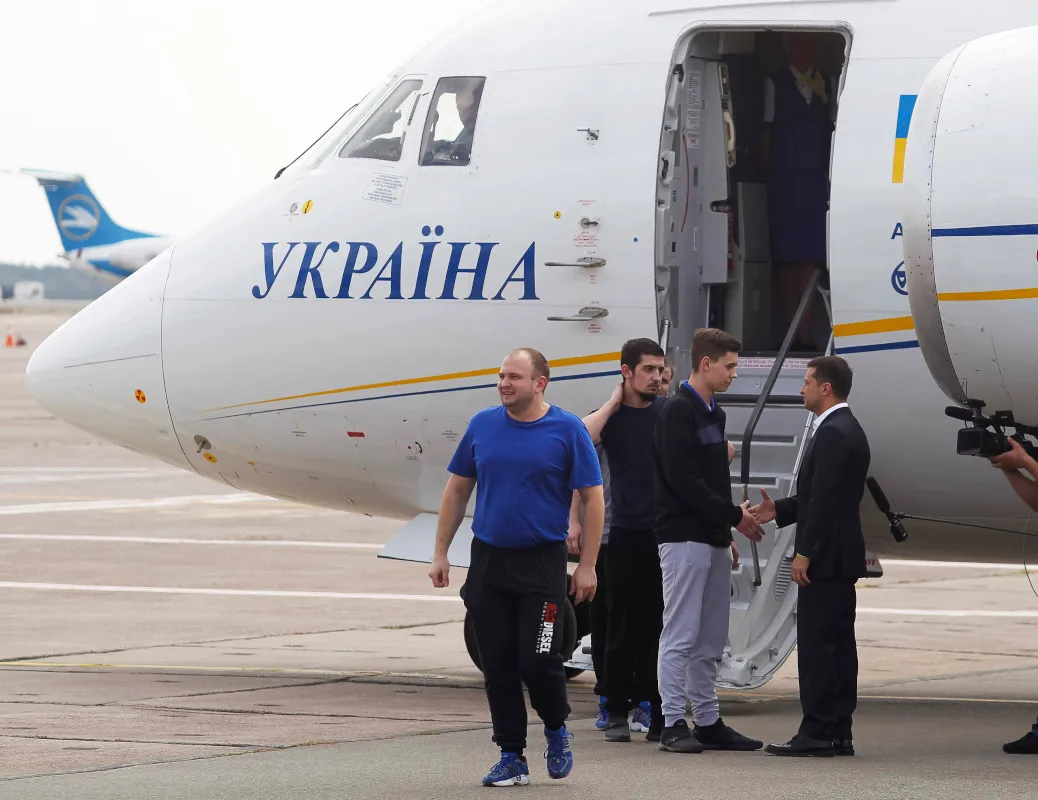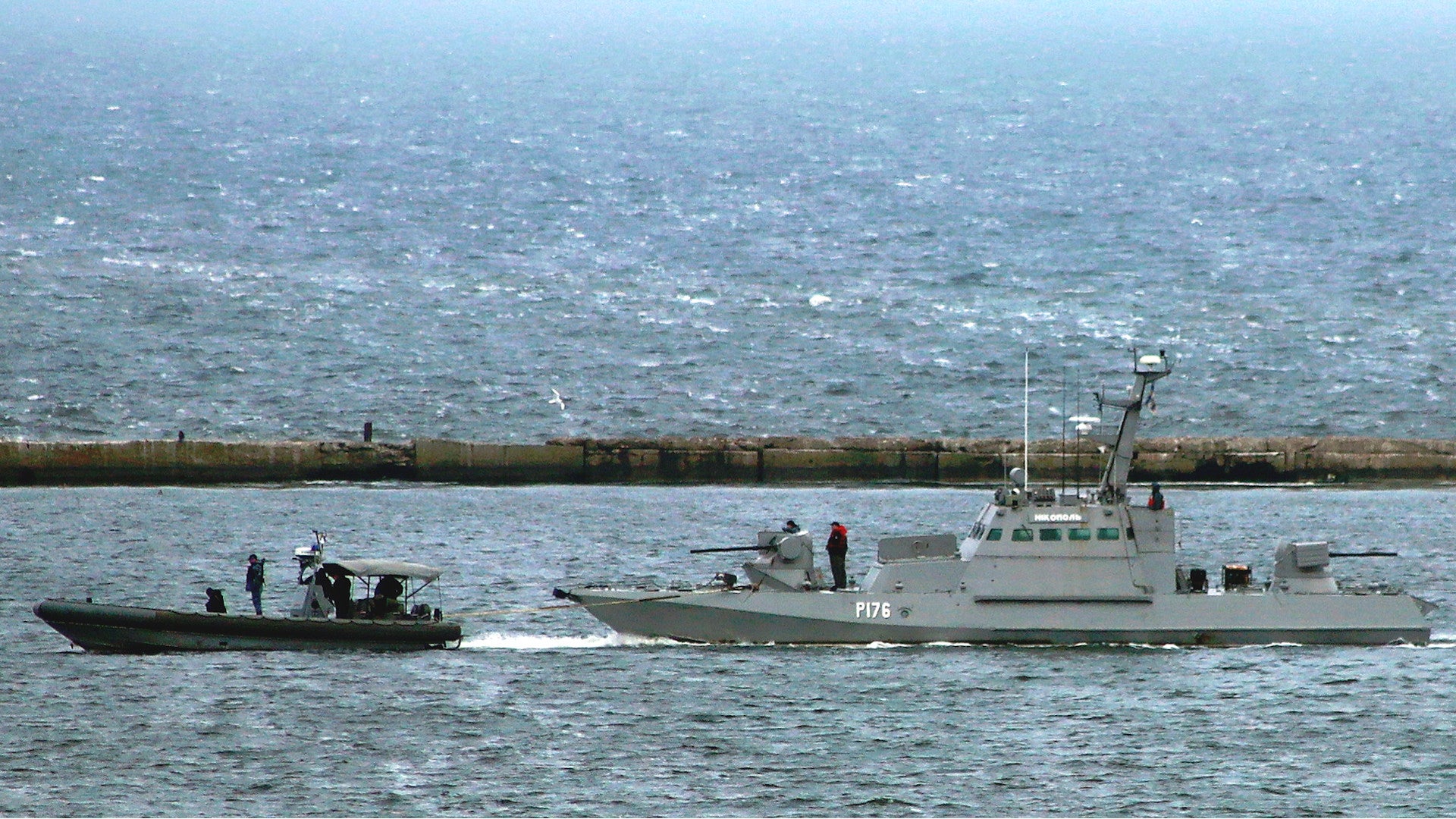The Ukrainian Navy’s top officer has decried the condition of three boats it just got back nearly a year after Russia seized them during a brief, but serious skirmish in the Kerch Strait, which links the Black Sea with the Sea of Azov. Ukraine says that the Russians stripped the two gunboats and tug of various fixtures, including mundane items, such as their toilets, and otherwise left them in disrepair.
Russian forces took control of the Berdyansk and Nikopol, a pair of Gyurza-M class patrol boats, which Ukraine refers to as “artillery boats,” as well as the tug Yany Kapu, a year ago on Nov. 25, 2018. Russia towed the ships out of the Port of Kerch on Nov. 17, 2019, and officially turned them back over to Ukrainian officials off the coast of the Crimean Peninsula the next day. Russia had also detained the crews of the three ships, 24 sailors in total, three of whom were injured after Russian security forces rammed and shot at the ships during the altercation. The Kremlin freed these individuals in September as part of a prisoner exchange.
“They do not go on their own,” Ukrainian Navy Vice Admiral Ihor Voronchenko, the service’s present commander, said in an interview with Ukraine’s Channel 4 on Nov. 20, 2019. “The Russians ruined them – even took off lamps, power outlets, and toilets.”
Voronchenko said that this was why it took the boats so long to return to a Ukrainian port after the transfer. The trio of vessels arrived at the Port of Ochakiv on the Black Sea to the west of Crimea, where Ukraine’s President Volodymyr Zelenskiy reportedly met them, on Nov. 20.



The exact extent of what the Russians removed from the three boats, and any damage they might have otherwise done to them, is unclear. For instance, pictures and videos show that the weapons on Berdyansk and Nikopol are clearly still in place, though reports say Russia kept the ammunition. Other notable external features, such as navigation radar antennas, also appear to still be in place.
“We will show the whole world the Russian barbarism towards them,” Voronchenko added in his comments to Channel 4, suggesting that more evidence of Russia’s poor handling the boats could be coming soon. At the time of writing, Russia does not appear to have responded in any way to Voronchenko’s remarks.

It would certainly not be hard to see Russia seeking to undermine Ukraine’s ability to put the boats back into service quickly. Russia’s official position is that the Ukrainian vessels failed to make the proper preparations and follow appropriate instructions from Russian coast guard personnel while transiting the Kerch Strait last year, but the real reason for the incident appears to have been an attempt on the Kremlin’s part to challenge Ukraine’s ability to access the strategic Sea of Azov.
The Russians had already put additional restrictions in place regarding Ukrainian transits through the Strait after illegally seizing the Crimea region in 2014. This was in spite of a deal that Moscow and Kyiv cut in 2003 that was supposed to guarantee both countries could readily move in and out of the Sea of Azov.
The Kremlin also only agreed to release the ships in advance of the upcoming summit in Paris to discuss potential paths to ending the conflict between Russia and Ukraine. This meeting is scheduled to take place in Paris, France on Dec. 9, with French and German representatives also in attendance. Since seizing Crimea in 2014, Russian forces have also been actively supporting separatists, who are themselves heavily linked to Russia’s intelligence services, in Ukraine’s eastern Donbass region.
On the surface, returning the ships seems to be a goodwill gesture, but their apparent condition would seem to imply that Russia continues to be defiant in the face of sanctions and international criticism of its involvement in the fighting in Donbass, seeing itself as still having the stronger negotiating position. It’s worth remembering that in May the United Nations’ International Tribunal for the Law of the Sea, which is situated in Germany, ruled that Ukraine was the aggrieved party in the November 2018 skirmish and ordered Russia to immediately release the captured boats and sailors.

The Kremlin defied that ruling, only turning the sailors back over to Ukraine as part of a prisoner swap deal. In return, Russia secured the freedom of individuals directly linked to the shootdown of Malaysian Airlines Flight 17 in 2014. A new report on that tragedy that the Dutch-led Joint Investigative Team (JIT) released just last week disclosed new evidence, including intercepted phone calls, showing that the forces in Donbass that brought down the airliner and killed the 298 people on board were operating under direct orders from Russian security services at the time.
Going into the summit next month, Russia’s position does appear to be relatively strong, given that Ukrainian President Zelenskiy has found his government tied up in one of the most serious U.S. political scandals in recent memory. This has to do with U.S. President Donald Trump’s apparent attempt to prompt Ukrainian authorities by withholding military aid to investigate Hunter Biden, son of Democratic presidential candidate Joe Biden, over business dealings in Ukraine as a way of launching a political attack on his father.
Zelenskiy, who made ending the conflict in Donbass a key campaign promise, has already shown a certain willingness to make concessions, such as the prisoner swap in September and an agreement with Russian-backed separatists to withdraw troops from certain front line areas the next month. At the same time, he has also voiced support for trying to join NATO, which can only draw the Kremlin’s ire. Russia very clearly wants to bring Ukraine back into its sphere of influence.

At the same time, Russia is already riding high on recent victories in Syria, where a sudden U.S. withdrawal in the face of a Turkish intervention has rolled back American positions in the country and allowed the Kremlin, as well as Syrian regime allies, to make considerable gains. Turkey has also moved even further into Russia’s orbit, and away from its NATO allies, as a result. Russian forces occupying facilities that U.S. personnel had previously occupied and, in many cases, appear to have hastily abandoned, has been a propaganda coup for Moscow, as well.
The Kremlin’s decision to send Berdyansk, Nikopol, and Yany Kapu back to Ukraine ahead of the Paris summit does seem to be intended as a signal of its willingness to negotiate, at least on the surface. However, if it’s true that Russian personnel ripped out the toilets and otherwise left the boats in a state of serious disrepair, the message Moscow might actually be sending is that it still feels that it can act arbitrarily and with impunity toward Kyiv and there’s little it thinks the current Ukrainian government can do about it.
Contact the author: joe@thedrive.com
